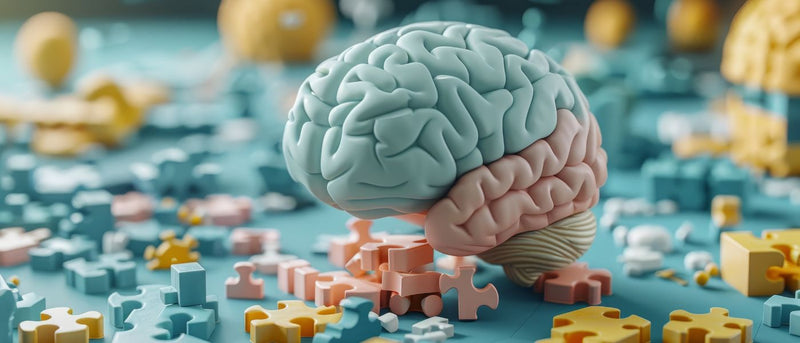
What is Phosphatidylcholine and How Can it Benefit Your Health?


The Top Brain Exercises to Improve Cognitive Function


Best Foods for Brain Health: Support Memory, Concentration, & Anti-Aging


Environmental Toxins & Their Effects on Health


How to Navigate Election Anxiety & Support Your Mental Health Through Election Season

What to Know About Gut Microbiome Testing: 7 Things to Expect (And What to Do Next)
Your gut microbiome is one of the most powerful ecosystems in your body — influencing digestion, immunity, mood, metabolism, and even brain health. So it makes sense that gut microbiome testing has become a recent trend. But if you’re thinking about testing your gut microbiome, it helps to know what you’re really getting (and not getting) from those results. Gut testing can offer valuable insights — but the test alone won’t heal your gut. True gut health starts with rebuilding the gut lining and supporting your gut’s foundational health.
Understanding Bile Salts and Their Role in Your Health
Bile salts may not be the first thing that comes to mind when you think about digestive health, but they are essential players in a complex system that keeps your liver, gut, and metabolism running smoothly. These molecules, derived from cholesterol and produced by the liver, are crucial for the digestion and absorption of dietary fats and fat-soluble vitamins. Beyond digestion, bile salts also impact liver function, cholesterol metabolism, and even gut microbiota.
TUDCA vs. Ox Bile: What’s Right for Your Liver?
Bile acids play a pivotal role in breaking down dietary fats and maintaining optimal liver function. Two popular supplements—TUDCA (Tauroursodeoxycholic acid) and ox bile—are often included in the bile conversation. But which one offers the best support for your liver and digestion? Let's explore the unique benefits of each and how they can work together for optimal fat digestion and liver function.
7 Sneaky Ways Chlorine Exposure Impacts Your Body (Plus 6 Ways to Protect Yourself)
Chlorine is one of the most commonly used disinfectants in the world — and for good reason. Its ability to neutralize harmful bacteria and pathogens makes it an essential tool for maintaining clean, safe swimming environments. But, while chlorine plays an important role in public health, repeated exposure to chlorinated water may also have unintended effects on the body.
Functional Thiamine (B1) Deficiency: 7 Signs You Shouldn’t Ignore
Thiamine is a vital nutrient involved in many of the body’s core processes, including energy production, nervous system signaling, and digestive regulation. A growing number of individuals are experiencing what's known as functional thiamine deficiency — when the body struggles to utilize thiamine effectively. This often leads to subtle but disruptive symptoms that can be difficult to trace back to a single cause.
Digestive Enzymes vs. Probiotics: What’s the Difference & Which One Do You Need?
Your pancreas, stomach, and small intestine naturally produce these enzymes, but many people experience enzyme insufficiencies due to stress, age, or chronic conditions. Enzyme supplements can help compensate and support more efficient digestion, especially for those with bloating, gas, or food intolerances.
How Long Does Magnesium Citrate Stay in Your System?
Magnesium citrate is a highly bioavailable form of magnesium, absorbed in the small intestine and excreted by the kidneys. What isn’t absorbed contributes to its osmotic laxative effect, drawing water into the colon and triggering a bowel movement.
Magnesium vs. Magnesium Citrate: What’s the Difference?
Magnesium is a vital mineral involved in more than 300 enzymatic reactions in the body. It plays a role in energy production, DNA synthesis, nerve function, muscle contraction, and maintaining a healthy heartbeat. Despite its importance, many people don't get enough magnesium through their diet. Symptoms of deficiency can include fatigue, muscle cramps, poor sleep, and anxiety.
Brain Composition 101: What Fats Make Up the Brain and What to Eat for Brain Health
So your brain is mostly made of fat — why is this important to know? The troubling fact is, more and more people are affected by cognitive decline and neurodegenerative disease every year, and modern medicine has yet to provide foolproof treatment solutions.













